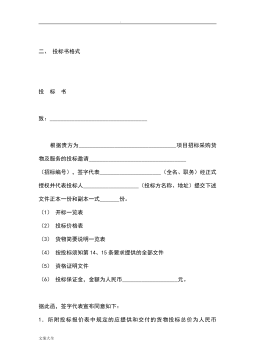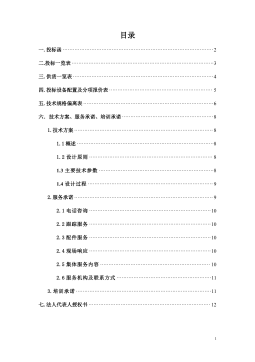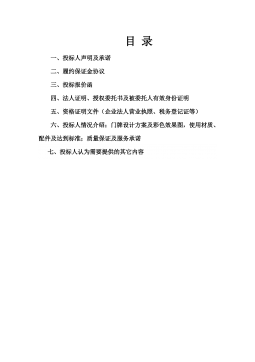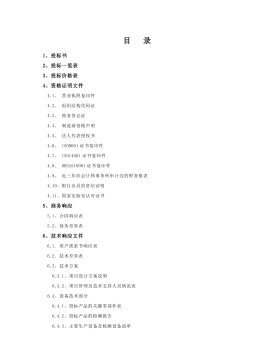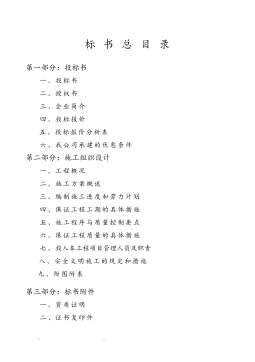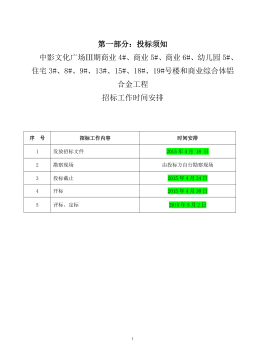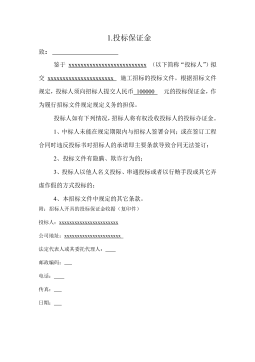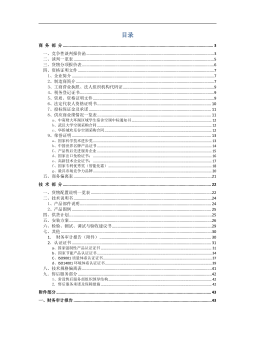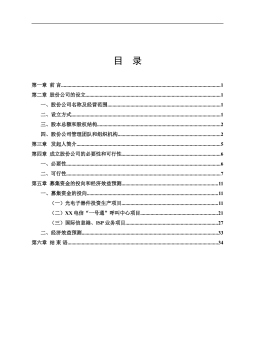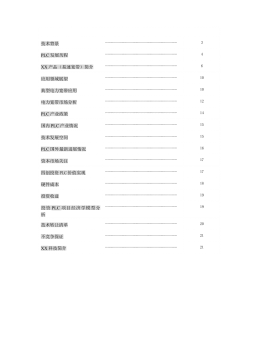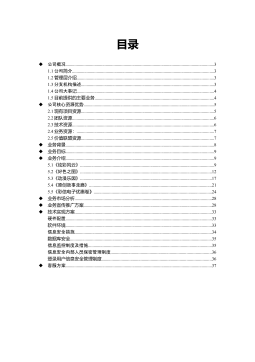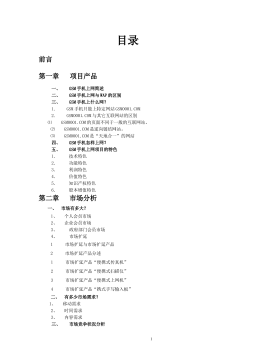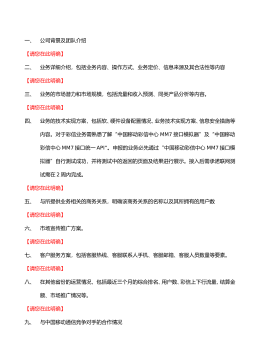民营企业财务治理研究
VIP免费
硕士学位论文
I
摘 要
改革开放后,我国民营经济迅速崛起并发展壮大,已成为国民经济的一个重
要组成部分。民营企业为社会经济发展做出了巨大贡献,如创造了较大的 GDP、
向国家缴纳了大额的税金、吸纳了大量的劳动人员就业,等等,在广东、浙江等
省份,民营经济甚至已成为该区域经济发展的生力军。可是,由于民营企业起步
晚、发展快、基础差、管理弱,致使大部分民营企业的财务治理状况不能尽如人
意,存在着财权配置不合理、财务治理结构不科学、财务治理机制不到位、利益
主体间的财权缺乏相互制衡、财务冲突不能有效协调等问题。这些问题倘若长期
不能得到有效解决和改善,必将严重阻碍与影响民营企业的健康、持续和进一步
发展。有鉴于此,本文通过对国内外相关文献的研究和民营企业财务治理状况的
实际调查了解,实事求是地提出了关于优化民营企业财务治理的若干措施与途径,
以使民营企业树立科学的财务治理理念、建立健全财务治理的结构与机制,从而
保证民营企业更加健康持续和谐地成长。
研究民营企业必须研究财务治理。本文从认识财务治理的涵义入手,回顾评
价了西方学术界关于公司治理或公司治理的财务方面的论述、分析评价了我国学
术界关于财务治理的种种理解,从而提出了自己关于公司财务治理的看法;进而
又对财务治理与公司治理、财务管理、内部控制等概念之间的关系进行了论证辨
析。在此基础上,通过调查研究和案例剖析,针对民营企业现阶段财务治理结构
与财务治理机制中存在的种种问题与不足以及产生这些问题与不足的原因进行了
较为深入的分析,从而就改善民营企业的财务治理结构、财务治理机制和财务治
理环境等方面提出若干优化措施,如董事会、经理层、监事会、债权人等利益相
关者在财权配置、财务决策方面的优化、财务人员素质的提升对财务治理执行力
的提高、财务文化和治理环境的改善对提高财务治理质量的影响等。
本文共分为五章。第一章绪论;第二章论述了财务治理的概念及其特征,并
对与财务治理相关的有关概念进行辨析;第三章论述了财务治理中的若干基本理
论问题;第四章重点分析揭示了现阶段我国民营企业财务治理中存在的问题;第
五章在前面各章的基础上探讨了民营企业财务治理的优化途径。
硕士学位论文
II
通过本文的研究,我们试图在如下方面进行理论与实务方面的创新:
1.较早涉足对民营企业财务治理问题的探索。从所能查阅的文献来看,学术
界专门论述该领域的论著还不多见、其见解也较浅显。本文在资料缺乏、取得有
关事例又较困难的情况下,大胆尝试,进行了积极的探索,以对提高我国民营企
业财务治理的质量有所启示和帮助。
2.进一步完善了财务治理的定义,认为财务治理概念中除财权配置及其相互
制衡外,还应包括协调利益主体各方产生的各种财务冲突的职能。这样认识,有
助于财务治理理论的完善和财务治理实务操作性的提高。
3.初步运用博弈论的方法,揭示了不同股权结构可能导致的不同财务治理的
效应,这就为民营企业改善股权结构起到导向与指引的作用。
4.特别强调了债权人(金融机构等)在民营企业财务治理中的特殊作用。针
对目前民营企业资产负债率普遍较高、债务资本普遍较大的状况,提出债权人在
享有财务决策权与财务监督权方面的权利以及与此相适应的财务信息知情权的享
有问题。
5.构建了基于协调利益相关者之间财务冲突的有关激励、约束机制,为财务
治理开拓了新视野、扩大了新领域、增加了财务治理的新职能。
关键词:民营企业;财务治理;财务冲突;优化途径
硕士学位论文
III
ABSTRACT
Since China’s reform and opening-up to the world, Chinese non-governmental
enterprises (NGEs) have become an important component of national economy. They
grow vigorously and contribute to nearly half China’s GDP, a mass of tax payments, a
large number of labors, and so on, especially in Guangdong and Zhejiang provinces.
However, there exist some problems on NGEs’ financial governance, such as
unreasonable disposition of financial-rights, unscientific structure and mechanism of
financial governance, lacking of effective reciprocal restraint among different parts, etc,
which severely undermine the stability, health and development of NGEs. In this thesis,
we apply initial research on these issues, for the purpose of establishing a scientific
concept of financial governance, improving the structure and mechanism and ensuring
a healthier and faster growth of NGEs.
It is necessary to focus on financial governance when we study NGEs. The thesis
beginning with financiers’ opinions, puts forward the definition of financial
governance and distinguishes it from corporate governance, financial management,
internal control and other concepts deeply. Based on this, the issue, focusing on the
structure and mechanism of financial governance in NGEs at present, analyses the
problems existed and how they existed in-depth by investigation and case study.
According to this, issues related to financial governance are concluded as how to
improve financial structure based on the disposition of financial-rights, how to
establish financial stimulation and restraint mechanisms, how to distribute
financial-right and how to coordinate financial conflicts among different stakeholders.
The text will apply initial research on these issues.
The whole text could be divided into five parts. The first part is introduction. In
the second part, we rise up the concept and characteristics of financial governance, and
then distinguish financial governance from other analogous concepts. In the next part,
part three, we analyse the issue related to financial governance in NGEs at present.
硕士学位论文
IV
Finally, based on the theoretical system and present issues analysed above, we put
forward some optimization channels to improve NGEs’ financial governance..
The creations of this thesis are listed below.
Firstly, the thesis studies financial governance of NGEs in an early time. So far,
researches on this field are so limited and the opinions are not profound. In that case,
the thesis attempts to conduct an active way to improve the financial governance of
NGEs in China.
Secondly, the definition of financial governance has been improved further. It is
pointed out that financial governance including not only the disposition and reciprocal
restraint of financial-rights, but also coordinating conflicts among different financial
parties. This will help to improve the theory of financial governance and the practices
in NGEs.
Thirdly, the application of game theory reveals that different structures of
ownership may lead to different effects of financial governance, which plays an active
role in improving structure of ownership.
Fourthly, according to the high debt-to-asset ratio and debt capital in NGEs, the
thesis emphasizes on the importance of creditors in financial governance, affording
another way to improve NGEs’ financial governance.
Finally, this thesis establishes financial stimulation and restraint mechanisms on
the basis of coordinating conflicts among stakeholders. This help to develop a new
vision for financial governance.
Keywords: Non-governmental Enterprises(NGEs) ;Financial Governance ;
Financial Conflict;Optimization Channel
硕士学位论文
V
目 录
第一章 绪论 ......................................................... 1
第一节 研究背景及意义 ............................................... 1
第二节 国内外研究现状综述 ........................................... 2
第三节 研究思路、内容、结构体系和主要创新点 ......................... 6
第二章 财务治理的概念、特征及相关概念辨析 ........................... 9
第一节 财务治理的概念及其特征 ....................................... 9
第二节 财务治理与相关概念辨析 ...................................... 11
第三章 财务治理若干基本问题探讨 .................................... 16
第一节 财务治理主体、客体与目标 .................................... 16
第二节 财务治理结构 ................................................ 23
第三节 财务治理机制 ................................................ 25
第四章 现阶段我国民营企业财务治理现状和存在的问题 .................. 28
第一节 家族式治理和“一股独大”造成财权配置不合理、财务治理机制不到位
................................................................... 28
第二节 董事会“虚设”、债权人“旁落”及监事会“架空”影响财务决策科学性
................................................................... 31
第三节 经理层“内部人控制”导致财务冲突 ............................ 39
第四节 财务人员素质欠佳削弱财务决策执行力 .......................... 41
第五节 “老板式”财务文化制约财务治理质量 .......................... 45
第五章 我国民营企业财务治理的优化途径 .............................. 48
第一节 民营企业财务治理结构的优化途径 .............................. 48
第二节 民营企业财务治理机制的优化途径 .............................. 58
第三节 民营企业财务治理的其他优化途径 .............................. 62
结 论 ........................................................... 65
参考文献 ........................................................... 66
附 录 ........................................................... 69
致 谢 ........................................................... 72
硕士学位论文
1
第一章 绪论
第一节 研究背景及意义
一、研究背景
财务治理作为我国理论界的一个重要课题在近年来越来越受到重视,这不仅
因为财务治理对一个企业的生存和发展有重要影响,而且财务治理理论自身的发
展也越来越受到关注。财务治理涉及企业的股东、董事会、债权人、经理层和监
事会等相关主体的利益权衡,同时明确地揭示各相关主体背后所隐藏的复杂经济
关系,即,需要协调、解决的是各利益主体对企业财务权利的“争夺”和对财务
资源的分配。在缓和了各利益相关主体的财务冲突,合理配置财务资源,各方利
益相互平衡的基础上,财务责任与义务才能落到实处,企业才能健康快速地发展。
目前,西方学者对公司治理问题研究较多,对财务治理的研究只是零星地分
布于企业理论和资本结构理论之中,尚未形成体系。我国学者最早从财务治理结
构入手,开始对该领域进行探索,现在主要形成了以伍中信、李心合、杨淑娥、
林钟高等教授为代表的若干观点,但对民营企业的财务治理问题却较少涉及。
另一方面,从我国经济发展情况来看,改革开放 20 多年,民营企业对中国经
济发展做出了重大贡献。民营企业在经济方面撑起了中国经济的半壁江山,吸纳
了大量的就业人口,成为解决人民就业问题的重要力量,创造了大量财富。2004
年,全国私营企业已经发展到 375 万家,民营经济在主要依靠自有资金的基础上,
创造了 60%以上的国民生产总值,承担了超过 70%的城镇就业,超过 60%的工业
总产值,超过 50%的社会零售额,超过 40%的固定资产投资和超过 60%的出口贸
易,在国民经济中占据了重要地位。①在广东、浙江等民营企业发达的省份,民营
企业的贡献占到了GDP的六成以上,且有不断上升的趋势。所以,我国民营企业
的数量、从业人员、资金、对国家的税收等都是不可忽视的巨大的经济、社会因
素。但是,由于起步晚,发展速度快,管理基础工作薄弱等原因,我国民营企业
还存在着许多问题,比如,许多民营企业实行家族式治理的方式、管理制度不健
① 单东.民营经济论[M].太原:山西经济出版社,2005:89.
摘要:
展开>>
收起<<
硕士学位论文I摘要改革开放后,我国民营经济迅速崛起并发展壮大,已成为国民经济的一个重要组成部分。民营企业为社会经济发展做出了巨大贡献,如创造了较大的GDP、向国家缴纳了大额的税金、吸纳了大量的劳动人员就业,等等,在广东、浙江等省份,民营经济甚至已成为该区域经济发展的生力军。可是,由于民营企业起步晚、发展快、基础差、管理弱,致使大部分民营企业的财务治理状况不能尽如人意,存在着财权配置不合理、财务治理结构不科学、财务治理机制不到位、利益主体间的财权缺乏相互制衡、财务冲突不能有效协调等问题。这些问题倘若长期不能得到有效解决和改善,必将严重阻碍与影响民营企业的健康、持续和进一步发展。有鉴于此,本文通过...
作者:周伟光
分类:高等教育资料
价格:150积分
属性:76 页
大小:482.96KB
格式:PDF
时间:2024-09-20


